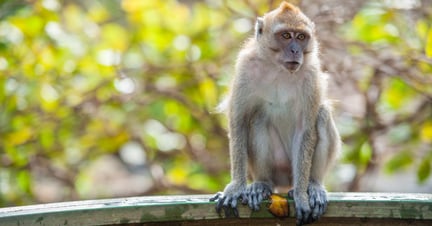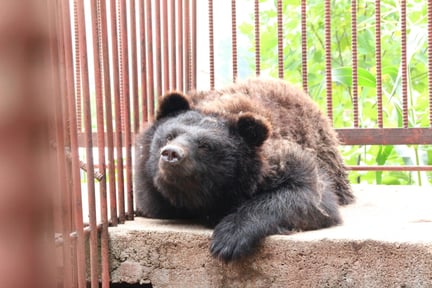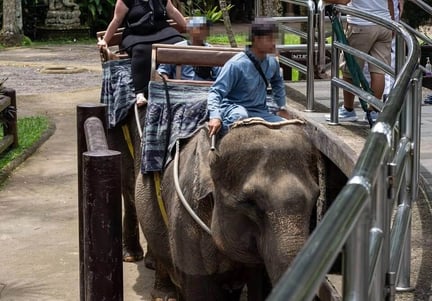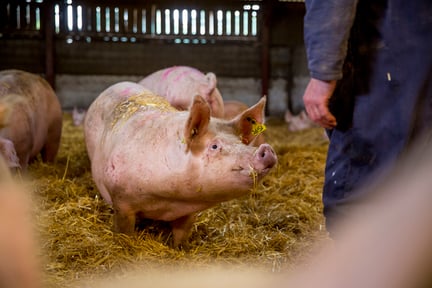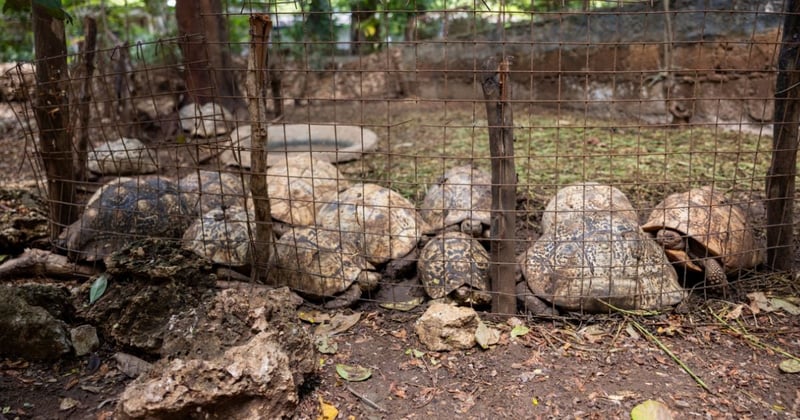
New Report Exposes the Cruel Reality of Commercial Wildlife Farming in Kenya
Press release
A ground-breaking report released today by World Animal Protection unveils the alarming inhumane treatment of wild animals trapped in commercial wildlife farming in Kenya.
The report reveals shocking animal cruelty, serious public health threats, and risks to the country's global conservation reputation.
The report, titled 'Behind Bars: Lifting the Lid off Kenya's Cruel Wildlife Farming', is based on months of extensive research and undercover field investigations.
It documents how wild animals - including crocodiles, giraffes, ostriches, tortoises, monkeys, and hippos - are bred, confined, and exploited in captive facilities across Kenya under the guise of conservation and tourism.
"Our findings confirm that wildlife farming in Kenya is not about conservation, but rather about profit at the expense of animal welfare. This report sheds light on the suffering endured by farmed wild animals and the urgent need for policy change."
"Today as we officially hand over the report to the ministry of Wildlife and Tourism in Kenya, we urge them to take leadership in ending wildlife exploitation and setting a precedent for wildlife friendly policies in the region."
Key Findings from the investigation:
- Animal Suffering: Every facility investigated showed animal welfare concerns, including overcrowding, untreated injuries, parasite infestations, poor nutrition, and severe stress behaviours.
- Public Health Threats: Some tourist venues investigated which offered close animal - human interactions lacked basic standard operating procedures such as handwashing, posing a risk of zoonotic disease transmission.
- Conservation Undermined: Field visits revealed that commercial farming fuelled the demand for wild-caught animals, under the guise of conservation, further endangering native species and contradicting its purported conservation purpose.
Call to Action
World Animal Protection is urging the Kenyan government to take immediate action, including:
- Undertake a comprehensive national audit of wildlife farms and captive facilities in Kenya with the view to shut down prosecute facilities found guilty of committing crime against wild animals
- Rescue and rehome animals by prioritizing the relocation of animals from poor conditions to accredited sanctuaries with proper care.
- Enforce a moratorium on captivity and wildlife farming expansion.
- Phase out existing wildlife farms and support alternative livelihoods for communities.
- Strengthen laws to prevent illegal trade and exploitation.;
- Ban wild animal-visitor interactions (AVIs) that promote animal suffering and expose people to zoonotic diseases.
- Raise public awareness about the ethical and ecological dangers of wildlife farming.
The report paints a picture illustrating that wildlife farming is not a sustainable solution for Kenya or any other nation. It perpetuates animal suffering, undermines conservation efforts, and poses serious risks to public health.
The Kenyan government, private sector, and individuals must come together to end this practice and ensure that wild animals are protected in their natural environments.
#END#
Note to editors
For interviews with World Animal Protection's spokesperson write to: evanskipkori@worldanimalprotection.org
- To download the full report, click here.
- To download the report images and Video B-Rolls, click here.
- To download the spokespersons, Images, video and audio byte, click here.
About World Animal Protection
World Animal Protection is the global voice for animal welfare. Since 1950 we have been campaigning for a world where animals live free from cruelty and suffering.
We have offices in twelve countries spread across different continents. We collaborate with local communities, the private sector, civil society, and governments to change animals' lives for the better.
Through our global strategy, we will end factory farming and create a humane and sustainable food system that puts animals first. By transforming the broken systems that fuel exploitation and commodification, we will give wild animals the right to a wild life.
Our work in protecting animals plays a vital role in solving the climate emergency, the public health crisis, and the devastation of natural habitats.
